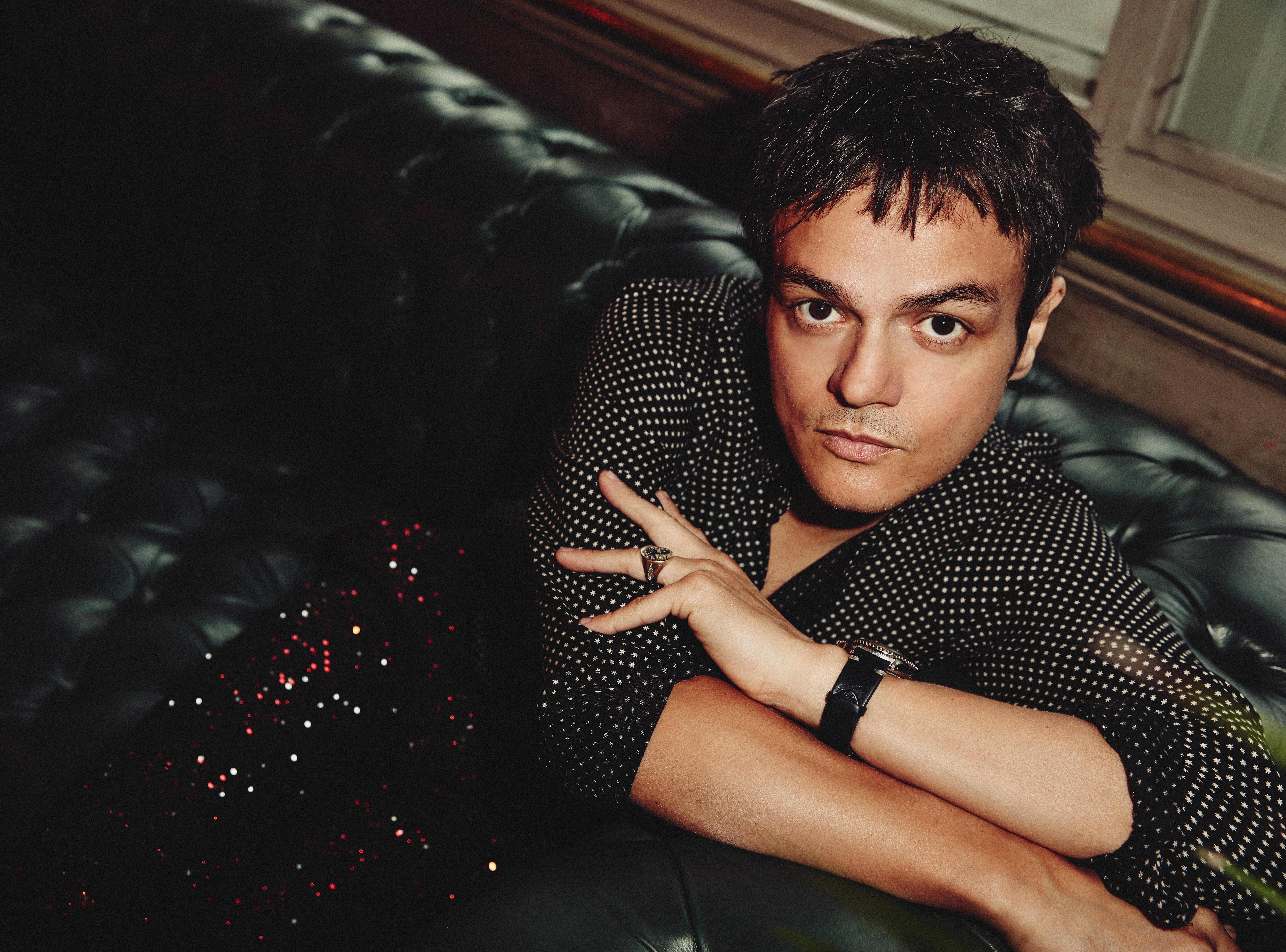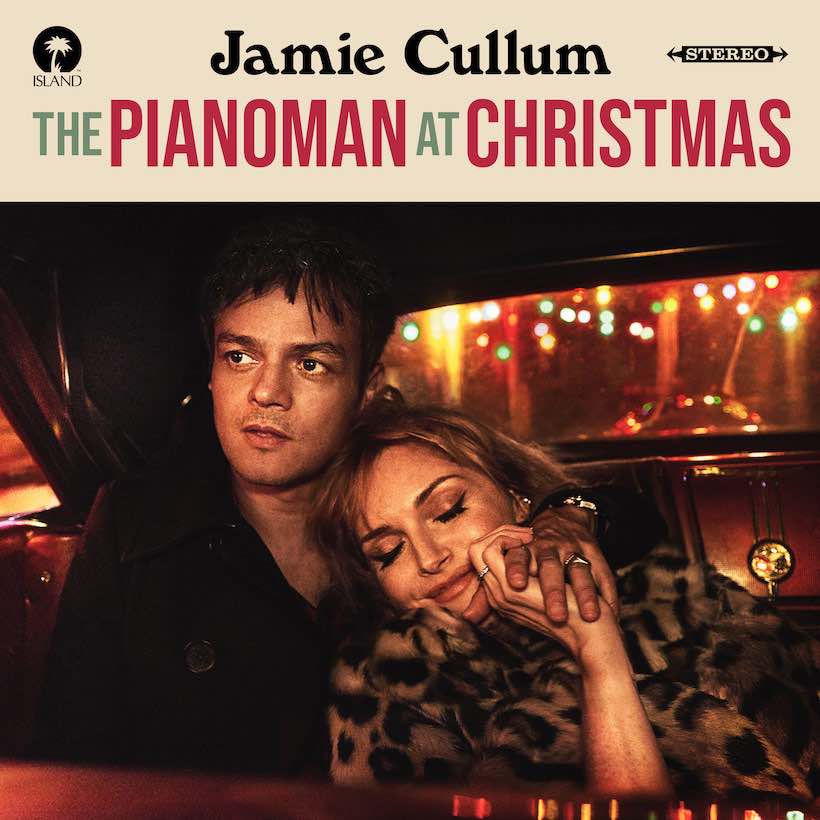Jamie Cullum: ‘Nothing is under our control and I’m quite comfortable with that’
The pianist was once the youthful face of UK jazz but now he’s putting out a vintage-inspired Christmas album on the advice of his wife, Sophie Dahl. He talks to Roisin O'Connor about why he’s feeling festive during the pandemic


Your support helps us to tell the story
From reproductive rights to climate change to Big Tech, The Independent is on the ground when the story is developing. Whether it's investigating the financials of Elon Musk's pro-Trump PAC or producing our latest documentary, 'The A Word', which shines a light on the American women fighting for reproductive rights, we know how important it is to parse out the facts from the messaging.
At such a critical moment in US history, we need reporters on the ground. Your donation allows us to keep sending journalists to speak to both sides of the story.
The Independent is trusted by Americans across the entire political spectrum. And unlike many other quality news outlets, we choose not to lock Americans out of our reporting and analysis with paywalls. We believe quality journalism should be available to everyone, paid for by those who can afford it.
Your support makes all the difference.Remind Jamie Cullum that he’s one of the UK’s biggest-selling jazz artists of all time, and he’ll likely wince. While, yes, the eternally youthful musician has shifted millions of albums, he wishes the title came with a caveat. “My music has as much in common with pop as it does with jazz,” he points out. “That’s something I’ve always tried to be honest about.” He’s not surprised that his early, media-peddled image as a jazz wunderkind still rankles among purists: “The problem is you’re putting me up against some of the most left-field, experimental artists of all time. They’re not making music that’s also occasionally influenced by Beyoncé and The Lemonheads.”
Still, Cullum’s track record is impressive. By the time he graduated from the University of Reading (with a BA in English Literature and Film Studies), he’d already produced his debut album, 1999’s Heard It All Before. An invitation to appear on Michael Parkinson’s show upon the release of his second record, Pointless Nostalgic, led to him signing a £1m deal with Universal. In 2002, while The Strokes were taking over the world and Kylie Minogue was queen of the Brit Awards, Cullum dropped Twentysomething, a Grammy-nominated mix of jazz standards, originals and a cover of Pharrell Williams’s “Frontin’”, which hit No 3 in the UK charts. Two years later, Cullum was at the Brits himself, outselling Kylie and nominated for British Breakthrough Act.
Cullum, now 41 and about to release a Christmas album, is on Zoom from his home in Buckinghamshire, which he shares with his wife of 10 years, the author and food writer Sophie Dahl, their two daughters Lyra and Margot, and a small menagerie of pets. He’s sitting at the desk where he records his successful jazz show on Radio 2, though he is also the kind of tastemaker who sits on the Mercury Prize’s judging panel every year. Reflecting on his breakthrough years, he agrees that he tended to get lumped into a “wave” of jazz and soul-influenced upstarts who emerged around the same time as he did. These included Norah Jones, Katie Melua and Amy Winehouse, the latter of whom supported him on tour in the early days of her career. He didn’t mind all that generalising, though, because he was too busy having fun. “It was an amazing time of my life,” he says.
It sounds like it. In 2005, Cullum went to the US to hang out with Pharrell for a few weeks, after the superproducer heard his cover. Cullum would turn up with him at parties and recording sessions, and ended up singing and playing piano on “You Can Do It Too”, which featured on Pharrell’s debut solo album, In My Mind. “We’d go to parties then be back in the studio at 4am,” Cullum says. He admits he was “overwrought” by the experience of being around one of his idols, and feels he’d make more of a mark were he given another opportunity. “It’s sad that only a tiny bit of the music we made together was used – I think I have a greater sense of self-possession [now],” he says. But man, did I have a good time.”
Now, Cullum is intent on spreading good cheer for the holiday season. No Beyoncé or Lemonheads here. Recorded at Abbey Road (with Covid safety measures in place, he confirms), The Pianoman at Christmas is resplendent with big-band bombast, one of the rare contemporary Christmas albums that actually stands a chance of surviving long after its release date. Much of this is to do with the fact that Cullum takes inspiration, as he often does, from timeless crooners such as Frank Sinatra and Tony Bennett, along with the Great American Songbook. “My goal was to make something that would still feel good in 50 years’ time – a record you look forward to taking out of your collection, like I do with the Christmas albums I love,” he says. “It was a licence to dig into all of that music with total geekery.”
It was actually Dahl who for years had urged Cullum to make a Christmas album, and she appears with him on the cover. “She played such a big part in the writing of this record,” he says. “She was there the whole time while I was writing – it was very romantic.” He wanted the cover to reflect the cinematic feel of the music, so you see him with Dahl curled up in the back of a vintage car, being driven through London at night. “It’s supposed to be a couple coming back from a Christmas party, something none of us will get to do this year,” he says. “What’s lovely about that image is that it was a genuine moment between us. It seemed like a beautiful way to represent this music without having me standing in front of a Christmas tree.”

The Cullum-Dahl family have plenty of Christmas traditions. They bring out their favourite albums each year: Ray Charles, Phil Spector, Sufjan Stevens. They love reading ghost stories, too, and watching Christmas films (Cullum loves Gremlins – “best Christmas movie ever”). He winces, laughing, when I ask if he performs on the piano for his family on Christmas Day: “Oh god, no. I’m usually too busy hunting for triple-A batteries.” He sang on Robbie Williams’s Christmas album last year, which proved to be the final push he needed to make his own, while the pandemic gave him time to work on it. “We’d finish homeschool with the kids in the morning, then I’d write these songs at the piano,” he says. “It’s a great exercise, to situate yourself in the world you’re writing about. The artists I really admire, Bob Dylan, Tom Waits, Nick Cave… they’re able to write in a world of fiction while still exploring personal feelings.”
While Cullum doesn’t address the pandemic itself on this album, the fact that it still looms over our daily lives makes those traditional themes feel more relevant than ever. “Human beings love rituals, because nothing’s really under our control, and we’ve never been more aware of that than this year,” he says. Yet the album also has songs that work outside of Christmas, such as the Coldplay-influenced “How Do You Fly”. “It’s about a child becoming an adult, wondering if they have any place in the world,” Cullum explains. “I think that’s something a lot of us can relate to.” I suggest that it works as a kind of prequel to his early single, “Twentysomething”, which is loaded with post-graduate sarcasm.
“It’s interesting the way life cycles like that,” he says. Now in his forties, he says he feels able to drop the cynicism and “still attack life with a sense of humour, while accepting chaos at every turn”. I’m surprised at this, because he’s never struck me as a cynical person. “Privately, I have been like that,” he says, smiling. “I’m aware that nothing is under our control and I’m quite comfortable with that. To be on planet Earth is to be slightly lost.”
Enjoy unlimited access to 100 million ad-free songs and podcasts with Amazon Music
Sign up now for a 4 month free trial (3 months for non-Prime members)
Enjoy unlimited access to 100 million ad-free songs and podcasts with Amazon Music
Sign up now for a 4 month free trial (3 months for non-Prime members)
While Cullum remains the endearing personality he was when he first emerged on the music scene, he’s definitely grown up, and there are moments of melancholy amid the album’s cheer. “I thought about how sad I’ve been at Christmas thinking about the people who are not in my life any more,” he says, sounding wistful, “and about other people who are lonely. Christmas can be a time of immense sadness for people as well.”
But the Pianoman at Christmas is, for the most part, incredibly feel-good – “The Jolly Fat Man” includes the kind of innuendo that makes parents laugh out loud while watching the Toy Story films with their children. “The reason Toy Story is a classic is because it works whatever age you are,” Cullum says. “I think there is often some naughtiness in Christmas songs, whether it’s ‘Santa Baby’ or ‘I Saw Mommy Kissing Santa Claus’.”
He’s surprised at how proud he feels of the record, believing it’s an evolution for him as a songwriter. “It feels like a Christmas miracle that we made it work,” he says with a grin, fully embracing the cheese he was once derided for. “I took on the challenge and I feel like I pulled it off.”
The Pianoman at Christmas is out now

Join our commenting forum
Join thought-provoking conversations, follow other Independent readers and see their replies
Comments